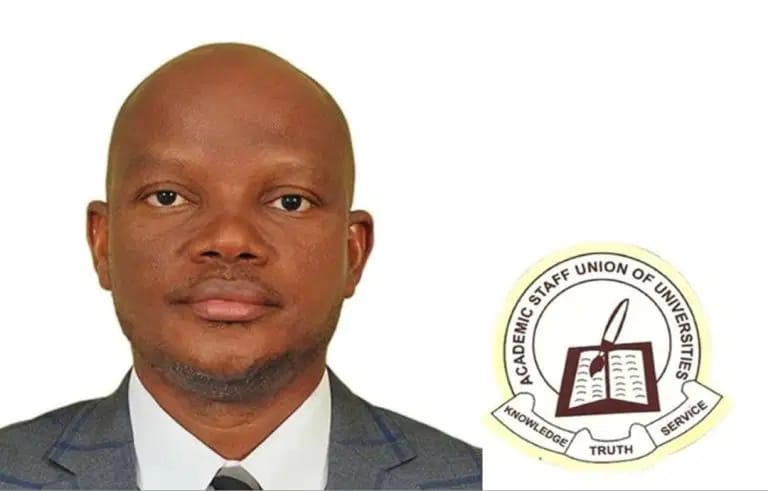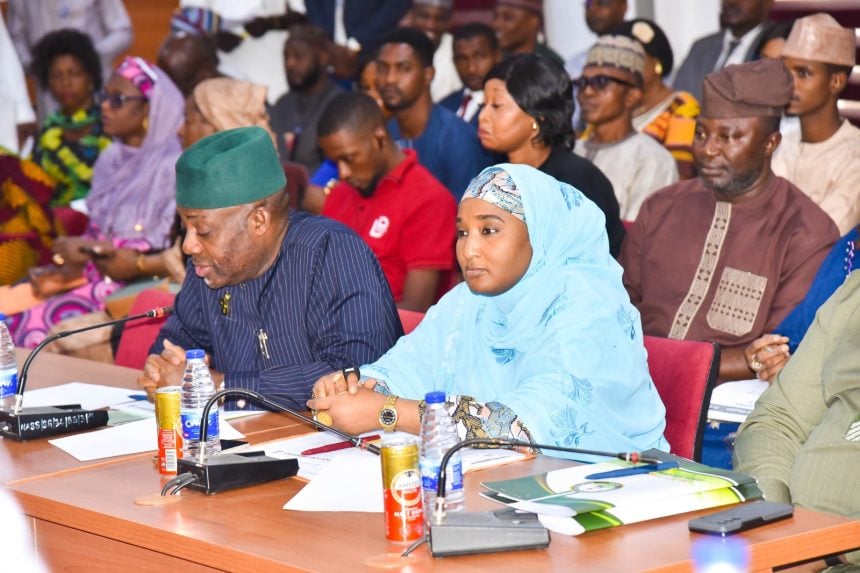The Academic Staff Union of Universities (ASUU) has firmly rejected the Federal Government’s directive enforcing the controversial “no work, no pay” policy on striking lecturers, declaring that no amount of threats or intimidation can weaken the union’s resolve.
This development comes amid the ongoing industrial action that has once again placed Nigeria’s higher education system in the spotlight, disrupting academic calendars and heightening tensions between university staff and the federal authorities.
ASUU Fires Back at FG’s Warning
In a strong statement released on Tuesday, the ASUU National President, Professor Chris Piwuna, stated that the union would not be cowed by what he described as “empty threats” from the Federal Government. According to him, ASUU’s struggle is rooted in fairness, accountability, and a genuine desire to restore the dignity of Nigeria’s public universities.
Professor Piwuna emphasized that the union’s position remains consistent — lecturers are not on strike for selfish reasons but to demand full implementation of previous agreements reached with the government. These agreements cover issues such as revitalization funds for public universities, improved staff welfare, earned academic allowances, and the implementation of the University Transparency and Accountability Solution (UTAS) as an alternative to IPPIS.
He further stressed that no serious academic would be intimidated by a government that continues to neglect its obligations while expecting universities to function effectively without the necessary infrastructure, resources, and motivation for staff.
“Nobody can threaten ASUU. We have been through this before, and our union will never be silenced. Our members are not fighting for personal gain; we are fighting for the survival of public education in this country,” Piwuna stated.
Background: Why ASUU Declared the Strike
The latest strike action was declared after the government allegedly failed to fulfill multiple agreements signed in previous negotiations. Despite numerous meetings and committees set up over the years, ASUU maintains that most of the promises — especially on funding, staff remuneration, and infrastructural upgrades — remain unimplemented.
The union insists that unless the government takes concrete steps to address these long-standing issues, university education in Nigeria will continue to decline in quality, leaving students and lecturers alike frustrated.
Sources within the union revealed that the current industrial action is also a response to the government’s continued use of the “divide and rule” approach, where attention and selective payments are allegedly given to splinter academic groups like the Congress of University Academics (CONUA) and the National Association of Medical and Dental Academics (NAMDA) to weaken ASUU’s bargaining power.
FG’s ‘No Work, No Pay’ Directive Sparks Controversy
The Federal Government had earlier reiterated that the “no work, no pay” rule would strictly apply to all university staff who refuse to resume duties. According to the government, it is against labour laws for employees to receive salaries during periods when they are not rendering services.
However, ASUU described this move as an “unjust attempt to blackmail university lecturers,” insisting that the government’s approach does not solve the root cause of the problem.
Professor Piwuna condemned the directive, noting that such threats only expose the government’s unwillingness to engage in genuine dialogue. He accused the authorities of deliberately choosing confrontation over negotiation, even when the education sector is already facing deep structural crises.
“You cannot threaten people who are fighting for a just cause. The ‘no work, no pay’ policy has never stopped us before and will not stop us now. What we need is a government that listens and acts in good faith,” he said.
Dialogue Still Possible, Says ASUU
Despite the firm tone of its response, ASUU has not completely closed the door on dialogue. The union president confirmed that the Minister of State for Labour and Employment had reached out to the union in a bid to reopen talks aimed at resolving the crisis.
According to Piwuna, ASUU remains open to any constructive engagement that prioritizes the welfare of both staff and students. He reiterated that the union’s main goal is not to stay on strike indefinitely but to ensure lasting solutions that prevent the recurring cycle of industrial disruptions in Nigerian universities.
“We have always been ready to talk. But what we won’t accept is a one-sided discussion where the government dictates and the union is expected to simply comply. Dialogue must be based on honesty and mutual respect,” he said.
Students and Stakeholders React
The ongoing standoff between ASUU and the Federal Government has continued to attract mixed reactions across the country. Many students have expressed frustration over the prolonged closure of universities, saying that repeated strikes have severely disrupted their academic progress and career plans.
Parents and education stakeholders have also called for urgent intervention from the Presidency and the National Assembly to mediate between both parties. Several advocacy groups have warned that the continued impasse could worsen brain drain, as many lecturers and students may seek opportunities abroad.
A student leader from one of the federal universities lamented that the government’s insensitivity to the education sector shows misplaced priorities:
“We are the ones suffering. Every time ASUU goes on strike, our lives are paused. The government and the lecturers need to find a way to end this permanently,” he said.
What Lies Ahead for Nigeria’s Universities
As the face-off deepens, education analysts warn that the constant strikes and policy disputes are eroding public confidence in Nigeria’s higher education system. Many have urged both parties to adopt a long-term strategy that addresses the systemic challenges facing the sector — from poor funding and inadequate research facilities to brain drain and outdated curricula.
For now, ASUU remains defiant and determined to continue its struggle until the Federal Government meets its demands. On the other hand, the government appears equally resolute in enforcing its policy stance, creating a stalemate that could stretch for weeks if no compromise is reached.
Conclusion
The unfolding ASUU–Federal Government drama is more than just another strike — it is a reflection of deep-seated issues within Nigeria’s education system. While the union insists that its fight is for the collective good of public universities, the government maintains that fiscal discipline and accountability must be upheld.
The nation now watches as both sides prepare for another round of negotiations that could determine the future of academic stability in Nigeria. Whether through confrontation or cooperation, one thing is certain — the fate of millions of Nigerian students hangs in the balance.



